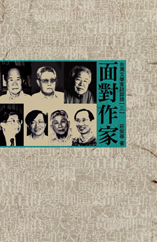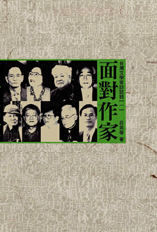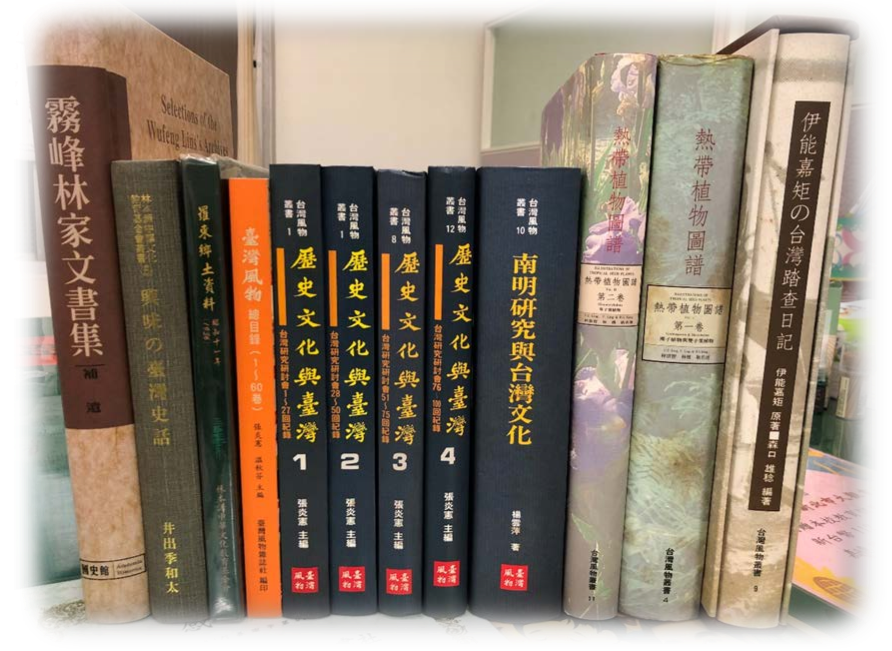   |
|
《面對作家:台灣文學家訪談錄》1 [電子書] 莊紫蓉 著 |
面對台灣和文學
文/許達然
「人共同的屬性是知道所發生的,及理解過去的慾望。」
G. R. Elton [1]
「作者和讀者的興趣從來就不一樣,倘若有時剛好相合,那是僥倖。」
奧登(1907-1973)[ 2]
文化志業難做。最難的是開始。維根斯坦(1889-1951)曾自我調侃:「很難找到開始。或較適切地說:在開始的時候難開始。」[3] 我 不知道十年前莊紫蓉女士如何開始訪談寫作者,以及開始時如何困難;但可想像要為台灣文學做事而提早自教職退休的她從此也更忙了。她做得相當認真:(1)讀 寫作者的作品;(2)準備訪談的問題(但不告知受訪者);(3)安排訪談時間地點;(4)專程去訪談、錄音,並照相;(5)根據錄音整理記錄;(6)記錄 打好字後給受訪者過目;(7)修改訪談記錄;及(8)安排發表。莊女士十年來對24位寫作者所做的27次訪談記錄終於成書了。書,對講究作者和讀者主體意 識的文學理論家Georges Poulet,「是作者真正保存理念、感覺、以及夢和生活方式的方法。……理解文學作品,也就是讓作者向我們把他們自己展現在我們裡面。」[4] 《面對作家—台灣文學家訪談錄》無疑保存了24位寫作者一些理念、感覺、夢想、生活方式、和表白。
訪談時莊女士促使寫作者在歷史和社會的脈絡裡回憶和反思。她提出問題讓寫作者回憶。在阿波裡奈爾(1880-1918)的詩裡,「記憶是獵人的號角/它的聲音隨風漸漸消逝。」[5] 然而,莊女士提出的問題是號角,喚起寫作者的一些回憶,聲音隨著時間越飄越親近越清晰—尤其是那些原本不願再勾起的回憶。對艾略特(1888-1965),「最好的時刻是過去的時刻,然後回憶。」[6] 然而,即使過去的時刻不美好,受訪者也溫習淒涼。不管快樂或悲傷,人有時靠記憶回答問題。每個人都是做為家庭、團體、社會的一份子而回憶的。回憶更使寫作者感受到自己是社會的一份子。在社會記憶的架構下,寫作者的回憶也和其他人一樣,是集體記憶的一部份。[7] 在共同的集體記憶裡,至少23位寫作者也有著台灣共同體意識。
在共同的回憶裡,這24位寫作者也分享一些共同點。以下,我只寫我想到的幾個。
回憶時寫作者也反思人生,做判斷,要重覆一些實踐。在他們的自我意識裡有群體意識。對尼采(1844-1900),「意識到自己,不是做為個人而是做為人類。讓我們反思,讓我們回想過去。」[8] 對台灣寫作者,反思時檢驗人生,而也和蘇格拉底(C.470-399 B.C.)那樣認為「未查驗過的人生是不值得活的。」[9] 然而,檢驗人生時,他們並不像榮格(1875-1961)那樣,不對自己和生命做任何判斷。[10]他們不只判斷,而且要重覆他們認為值得做的。祁克果(1813-1855)強調,「倘若人沒有回憶或重覆,生命就將消除在空幻而無意義的聲音裡。」[11] 回憶,反思,檢驗,判斷後,這24位寫作者要重覆在他們的存在裡實踐的意義。
對大部分作者,他們寫作,所以他們存在。他們要表達自己和別人的存在。年輕時曾想做詩人的馬克斯(1818-1883)早就堅持:「人表達他們的生命,所以他們是(存在)。」[12] 詩人裡爾克(1875-1926)更直截寫「歌是存在。」(Gesang ist Dasein)。[13] 換句話說,「寫詩是存在。」[14] 無論從事那一種文類,台灣寫作者同意巴爾特(1915-1980):「倘若我不寫,我就一文不值。」[15] 不管原來的職責是文化中心主任、銀行主管、家管、企業家、醫生、工程師、或教師,他們存在的主要規劃是寫作台灣。
在存在規劃裡,這24位寫作者都創作很久了。有六位從日治時期就開始寫作,已六十多年了。十三位創作約五十年;其他五位創作或評論約四十年。在見識方 面,他們都熟悉外國文學,其中一半還翻譯過中、日、英、法、德文的詩、小說、和評論。他們都不輕易發表作品。除了兩三位外,他們都選擇在文學刊物,像《台 灣文藝》、《文學界》、《文季》、《新地文學》、《文學台灣》、《笠》發表小說、詩、散文、和評論。
這24位寫作者,除了創作外也幾乎都評論。在他們當中,有18位寫詩。在創作理念方面,他們顯然不同意梵樂希(1871-1945):「最好的詩總是獨白的形式」;[16] 或馬拉美(1842-1898):「唯一的現實是美。」[17] 無論寫詩、小說、散文、或評論,這些台灣寫作者都像法國詩人聶瓦爾(1808-1855)那樣質問:「人,你想 你是唯一的心靈嗎?/看看週遭。你所看見的都/跟存在顫抖。雖然你自由思考,/你不思考的一件事是全體。」[18] 他們思考的對象是全體,描寫不美的現實,要創造台灣文學裡的美學。他們關注的並不是私自的及自私的世界,而是大家都共享存在的世界。正如奧地利社會學及現 象學家許茲(1899-1959),他們也認定別人的存在是當然的事實。我們每日生活的世界是大家共享的「互通主體」 (intersubjectivity)的世界,有著互惠和相瞭解的特質。[19] 面對全體,台灣作家要書寫台灣人每日的生活世界,讓讀者更深層理解並反思世界和在地人的生活。他們要表達台灣人的群體氣質(ethos),以及芝加哥大學人類學家芮費爾德(1897-1958)所說的世界觀:「在地人整個有意義的世界的內在觀點。」[20] 這些台灣作家期望創作有世界觀的在地人的共同體文學。
這些台灣作者更期望建構台灣文學的主體性。伍爾夫夫人(1882-1941)曾樂觀地說,「文學是對任何人公開的。」[21] 然而,文學卻都是在政治、社會裡的制度和規範下產生。[22] 文學,像政治、經濟、社會、文化等現象,也是角力的場域(champ, field)。文學場域,跟其他的場域一樣,受到外在的壓力和內在的牽制,面對國家機器、各種控制體系、市場機制、和消費者(讀者)的文化能力,需要鬥智和角力。[23] 在文學場域裡,這些台灣寫作者除了「文化資本」外並沒有什麼資源。他們以不同的理念、風格、和策略抗衡霸權和各種形式的操控,挑戰「集體的誤認」(collective misrecognition)和流行的庸俗,並拒斥任何形式的誘惑。[24] 除了尋求文學場域相對的自主(relative autonomy)外,他們更堅持個人及群體的主體性(subjectivity),表達他們的文化價值觀,顯示他們作品的不同特質。[25] 在歷史意識裡,他們用創作擁抱家鄉的人民和人民的家鄉。在主體意識裡,他們塑造台灣和人民的意象。面對台灣和文學,他們用創作和評論要建構台灣和文學的主體性。
NOTES
1. G. R. Elton, 「Purpose,」 The Practice of History (New York: Thomas Y. Crowell Company, 1967), p. 1.
2. W. H. Auden, 「Reading,」 The Dyer』s Hand and Other Essays (New York: Vintage Books, 1968), p. 3.
3. Ludwig Wittgenstei On Certainty, ed. G. E. M. Anscombe and G. H. von Wright; trans. Denis Paul and G. E. M. Anscombe (New York: J & J. Harper Editions, 1969), section 471, p. 62.
4. Georges Poulet, 「Criticism and the Experience of Interiority,」 in The Structuralist Controversy: The Languages of Criticism and the Sciences of Man, ed. Richard Macksey and Eugenio Donato (Baltimore: The Johns Hopkins University Press, 1972), p. 61.
5. Guillaume Apollinaire, 「Cors de Chasse (Hunting Horns),」 Selected Writings of Guillaume Apollinaire, trans. Roger Shattuck (New York: New Directions, 1971), pp. 130-131.
6. T. S. Eliot, The Cocktail Party, in The Complete Poems and Plays (New York: Harcourt, Brace and Company, 1952), act 3, p. 372.
7. Maurice Halbwachs, The Collective Memory, trans. Francis J. Ditter and Vida Yazdi Ditter (New York: Harper Colophon, 1950), pp. 22-33; On Collective Memory, ed. and trans. Lewis A. Coser (Chicago: The University of Chicago Press, 1992), pp. 38, 43, 52-54, 81, 182, 189. Also see Paul Ricoeur, Memory, History, Forgetting, trans. Kathleen Blamey and David Pellauer (Chicago: The University of Chicago Press, 2004), pp. 120-123.
8. Friedrich Nietzsche, 「Book Three: Principles of a New Evaluation,」 The Will to Power, trans. Walter Kaufman and R. J. Hollingdale (New York: Vintage Books, 1968), section 585, p. 316.
9. Plato, 「Apology,」 The Dialogues of Plato, trans. Benjamin Jowett in Plato, Great Books of the Western World, No. 7 (Chicago: Encyclopedia Britannica, Inc., 1952), section 38, p. 210.
10. C. G. Jung, 「Retrospect,」 Memories, Dreams, Reflections, ed. Aniela Jaffe and trans. Richard and Clara Winston (New York: Vintage Books, 1989), p. 358.
11. Soren Kierkegaard, Repetition: A Venture in Experimenting Psychology, in Fear and Trembling. Repetition, ed. and trans. Howard V. Hong and Edna H. Hong (Princeton: Princeton University Press, 1983), p. 149.
12. Karl Marx, 「Feuerbach: Opposition of the Materialist and Idealist Outlook,」 Karl Marx and Frederick Engels, The German Ideology, ed. C. J. Arthur (New York: International Publishers, 1970), p. 42.
13. Rainer Maria Rilke, 「Part 1, No. 3,」 Sonnets to Orpheus, trans. C. F. MacIntyre (Berkeley: University of California Press, 1960), pp. 6-7; also in Sonnets to Orpheus, trans. David Young (Middletown, Conn.: Wesleyan University Press, 1987), pp. 6-7.
14. Rainer Maria Rilke, 「The First Ten Sonnets to Orpheus,」 in Selected Poems of Rainer Maria Rilke, trans. Robert Bly (New York: Porennial Library, Harper & Row, Publishers, 1981), pp. 196-197.
15. Roland Barthes, Roland Barthes, trans. Richard Howard (New York: Hill and Wang, 1977), p. 169.
16. Paul Valery, 「On Poem,」 trans. James R. Lawles, in Poems, trans. David Paul, The Collected Works of Paul Valery, Vol. 1, ed. Jackson Mathews (Princeton: Princeton University Press, 1971), p. 424.
17. Stephane Mallarme, 「Letter to Henri Cazalis, May 14, 1867,」 Selected Poetry and Prose, ed. Mary Ann Caws (New York: New Directions, 1982), p. 88.
18. Gerard de Nerval, 「Vers dores (Lines in Gold),」 in Modern Poets of France, trans. and ed. Louis Simpson (Ashland, Oregon: Story Line Press, 1998), pp. 42-43.
19. Alfred Schutz, The Phenomenology of the Social World, trans. George Walsh and Frederick Lehnert (Evanston: Northwestern University Press, 1967), pp. 163-172; Helmut R. Wagner, 「Introduction: The Phenomenological Approach to Sociology,」 in Alfred Schutz, On Phenomenology and Social Relations, ed. Helmut R. Wagner (Chicago: The University of Chicago Press, 1970), pp. 30-32; Schutz, ibid., pp. 163-166; Alfred Schutz and Thomas Luckman, The Structures of the Life-World, trans. Richard M. Zaner and H. Tristram Engelhardt, Jr. (Evanston: Northwestern University Press, 1973), pp. 3-7, 15-18.
20. Robert Redfield, 「An Outlook on Life,」 The Little Community, in The Little Communisy. Peasant Society and Culture (Chicago: The University of Chicago Press, 1960), pp. 86, 88, 95.
21. Virginia Woolf, Room of One』s Own (San Diego: Harvest / HBJ Book, Harcourt Brace Jovanovich, Publishers, 1929), p. 78.
22. Pierre Bourdieu, 「The Author』s Point of View,」 The Rules of Art: Genesis and Structure of the Literary Field, trans. Susan Emanuel (Stanford: Stanford University Press,1975), pp. 215, 231-232; 「Field of Power, Literary Field and Habitus,」 trans. Claud Du Verline, The Field of Cultural Production, ed. Randal Johnson (New York: Columbia University Press, 1993), p. 163.
23. Bourdieu, The Field of Cultural Production, pp. 30, 40-42, 184-185; Pierre Bourdieu and Loic J. D. Wacquant, 「The Purpose of Reflexive Sociology (The Chicago Workshop),」 Pierre Bourdieu and Loic J. D. Wacquant, An Invitation to Reflexive Sociology (Chicago: The University of Chicago Press, 1992), pp. 105-106; David Swartz, Culture and Power: The Sociology of Pierre Bourdieu (Chicago: The University of Chicago Press, 1997), p. 127; Pierre Bourdieu, Science of Science and Reflexivity, trans. Richard Nice (Chicago: The University of Chicago Press, 2004), p. 47.
24. Bourdieu, 「The Production of Belief: Contribution to an Economy of Symbolic Goods,」 The Field of Cultural Production, p. 81; 「The Purpose of Reflexive Sociology (The Chicago Workshop),」 An Invitation to Reflexive Sociology, pp. 109-110; Swartz, Culture and Power, pp. 121, 124-126.
25. Bourdieu, 「Field of Power, Literary Field and Habitus,」 The Field of Cultural Production, p. 164; 「The Purpose of Reflexive Sociology (The Chicago Workshop),」 pp. 100, 103.









